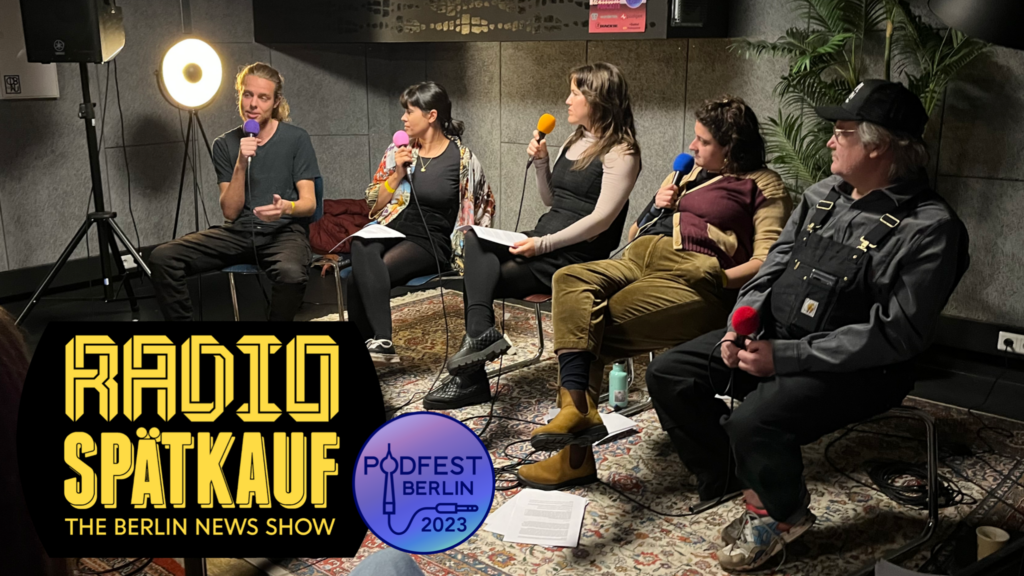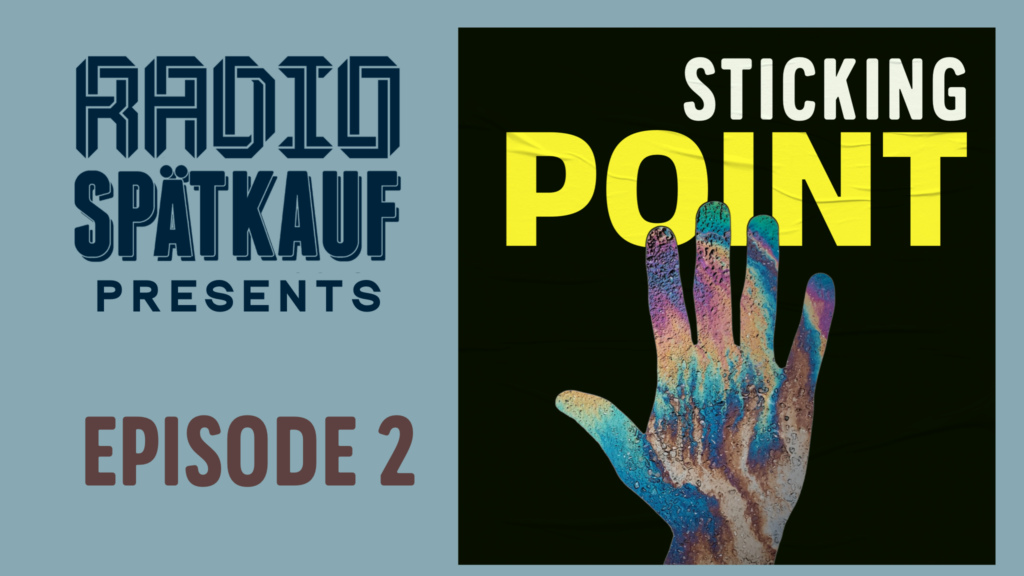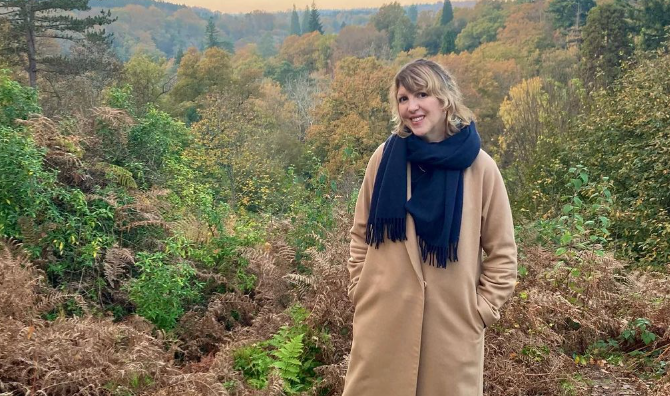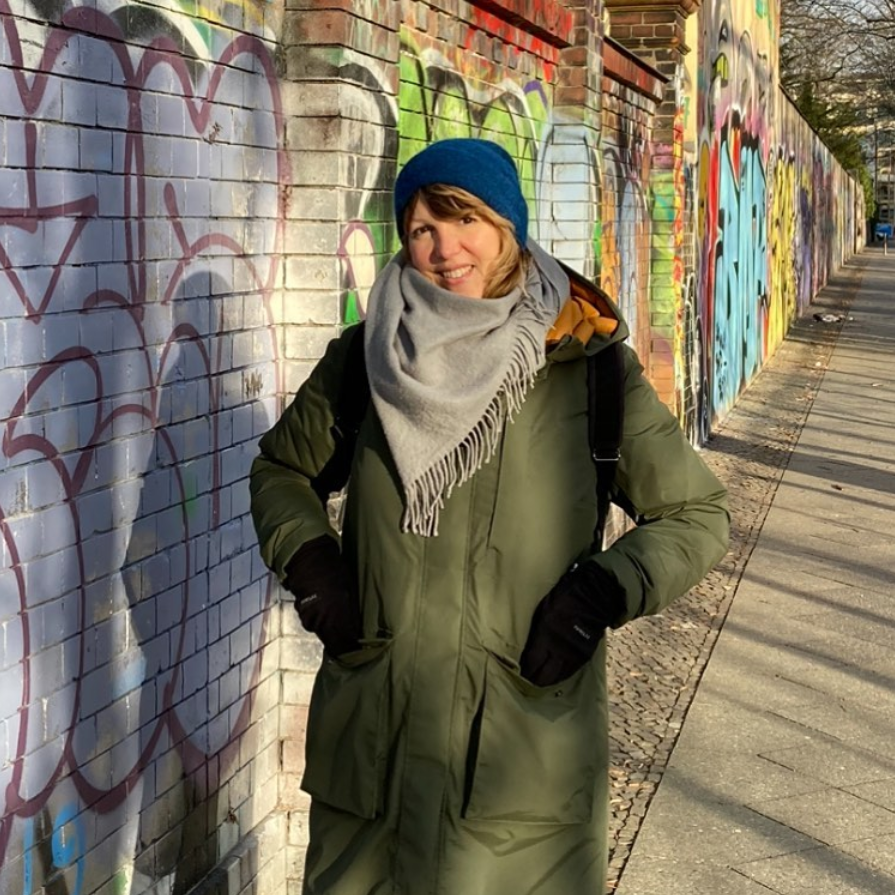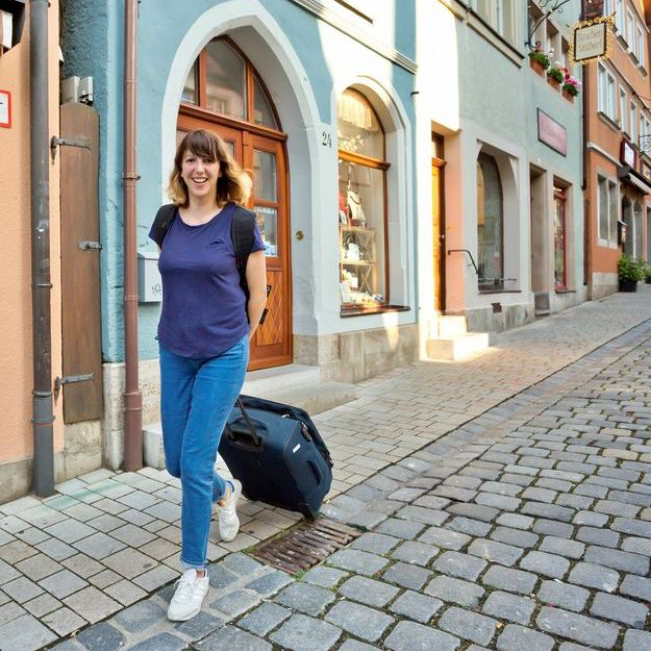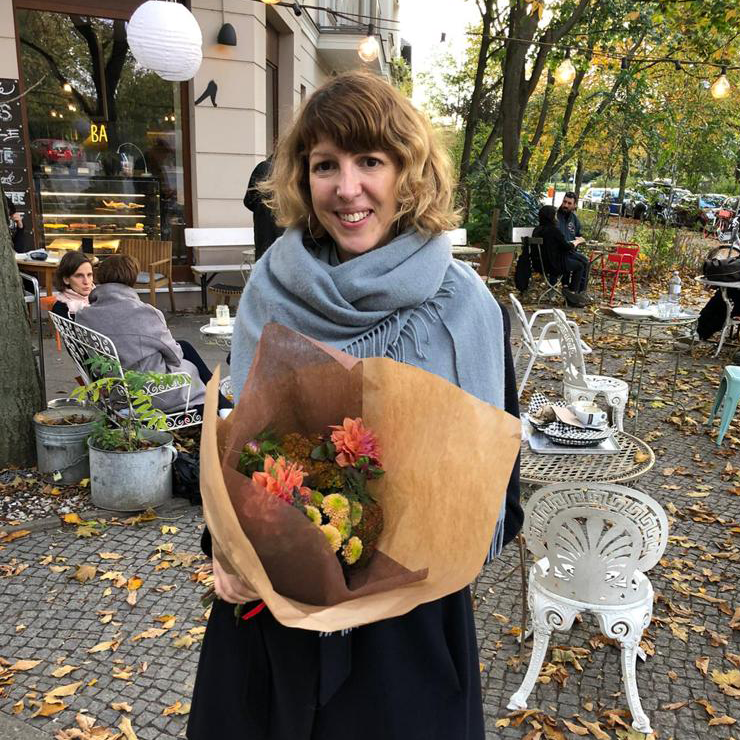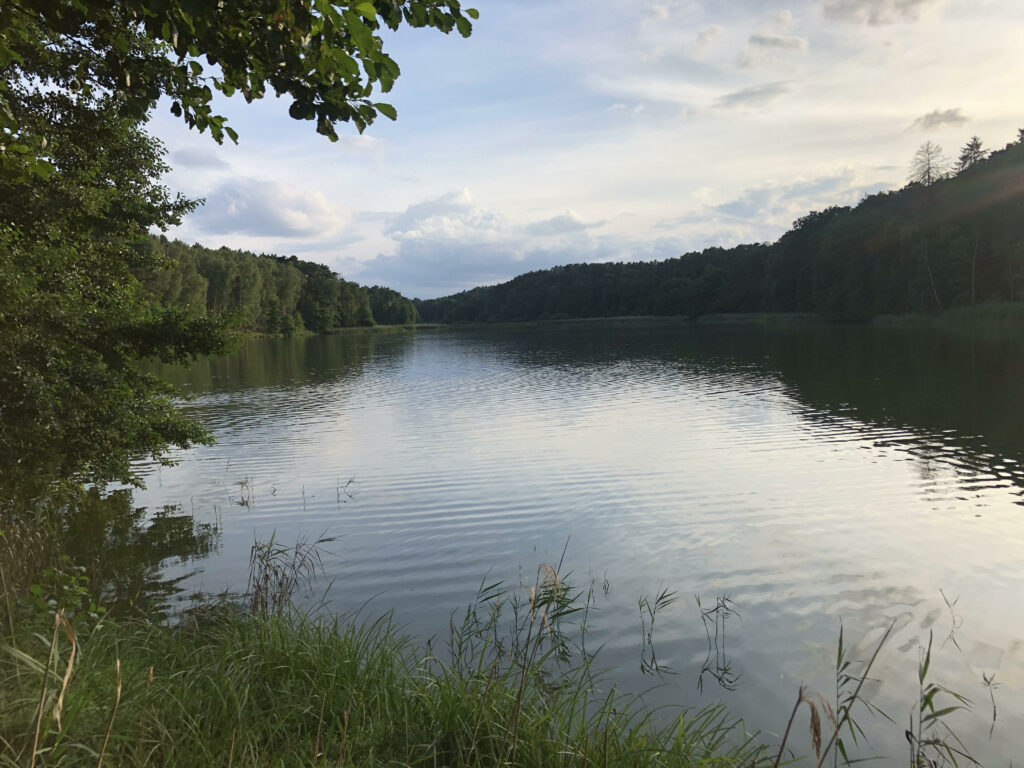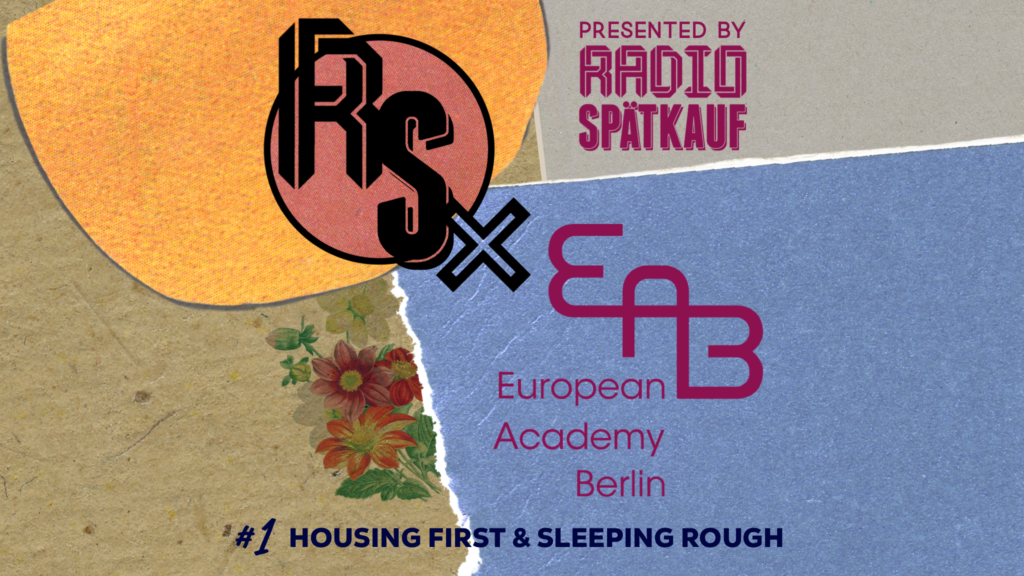
Recorded Dec 6th 2023 in Berlin at Salon Am Moritzplatz, Released Dec 19th 2023
A Special Edition of Radio Spätkauf created through a partnership with Europäische Akademie Berlin. This episode is a pilot for the “RSx” series in which we seek presciptions for the problems of our city and the world which revolves around it. An attempt, in our way, to look forward to the future with hope. With hosts Matilda Kaiser and Daniel Stern, plus guests Debora Ruppert, Karen Holzinger of Berliner Stadtmission, and Kathrin Schultz of Queerhome*.
Dan and Matilde catch up and remind us of the Kältebus number: 030 690 333 690 and review some previous Radio Spaetkauf stories that overlap with today’s topic of homelessness; Zweckentfremdungsverbot, co-working spaces, commercial real estate regulations and the battles of the cities last remaining squats, with an update on Liebig14. How does the housing crisis affect the search for a home? The topic of Homelessness is introduced by Dan who struggles to find the right vocabulary and correct language with which to describe the issue.
The first guest, Debora Ruppert, (insta link) is an artist who captures the lives of marginalized people, including the homeless, through photography. her most recent exhibition “Home Street Home” was on display in the Bundestag. She emphasizes the importance of speaking with people who are experiencing homelessness rather than merely speaking about them. That dialogue and relationships help individuals out of their situation. To learn more about “Housing First” we are joined by Karin Holzinger, who in 1991 began her work with Berliner Stadtmission and later became their head of homelessness services. Karin also co-invented the Kältebus, and is a co-founder of Kumpfide, an organization twhich offers support to non-abstinent alcoholics. She clears up some common misconceptions about homelessness, “When you walk through the streets, you see people, and you think, oh, he or she might be homeless, because maybe the person is not dressed very well, he or she looks drunk or [seems to have] psychological problems, so you think, ah, this is homelessness. Some of these people are not homeless and on the other hand, about I would say about 90% of the people who are homeless you would never recognize as being homeless because they look like you and me…” Karin explains the vocabulary in German for homeless people: Obdachlos and Wohnungslos, plus attempts to teach Dan the meaning of “Bürgerlich” and tells us the value of a “Housing First” program, as well as some of the limitations. What does it mean to help people survive vs. changing their living situation?
Next, Radio Spaetkauf is joined by Katrin Schulz of Queerhome* Berlin to explain some of the challenges faced specifically by LQBTQI+ plus people in finding homes and shelter. She describes her work; “We say we are in the middle. We are not a government organization. We are not a church or Christian organization. We are not an only queer organization. We are in the middle because the organizations who work with homeless people have no knowledge about LGBTIQ and the queer organizations normally have no knowledge about homelessness…we are in the middle and try to give information to the one side and to the other side.” She affirms that helping people get off the streets is not just about bringing services to them but also about informing the general public about the reality of homelessness and dispelling misconceptions about who is homeless and why they have ended up without a home. She also underlines the importance of recognizing that many people who do find a place to live or a shelter are forced to put up with terrible conditions. Queerhome* is a relatively new organization and looking for growth in its network and resources.
Matilde laments the lack of help for people living at Moritzplatz station and the missed opportunity at Habersaathstraße, where an empty building was used briefly for housing.
The show ends with a mix of hopeful wishes, pragmatic realities, practical advice and rueful observations.Find more information on our guests and their organizations at these links:
Karen Holzinger, Berliner Stadtmission:
https://www.berliner-stadtmission.de/
https://www.facebook.com/BerlinerStadtmission
https://www.instagram.com/berliner_stadtmission/
Kathrin Schultz, Sonntags Club and Queerhome*:
https://kathrin-schultz.de/
https://sonntags-club.de/ https://www.instagram.com/sonntags.club/
https://queerhome.de/ https://www.facebook.com/queerhomeberlin
https://www.neuechance.berlin/
Debora Ruppert, artist, Home Street Home:
https://www.deboraruppert.com/
https://www.instagram.com/debora_ruppert/
https://www.instagram.com/homestreethome_ausstellung/
This episode was made in conjunction with the Europäische Akademie Berlin aka “EAB”: https://www.eab-berlin.eu/en and recorded at Salon Am Moritzplatz
Radio Spaetkauf information and episodes cab be found at: https://www.radiospaetkauf.com/
and you can find us on these socials:
https://www.instagram.com/radiospaetkauf/
https://www.facebook.com/radio.spaetkauf
Today’s hosts were Daniel Stern and Matilde Keizer.
https://www.sterndaniel.com/
https://www.instagram.com/matikeizer/
Thank you for subscribing, following, and supporting the show.
